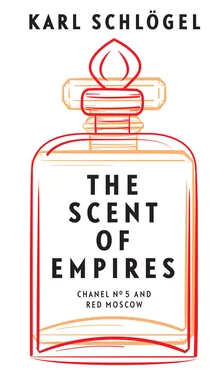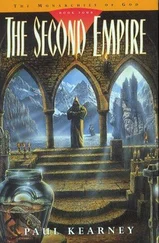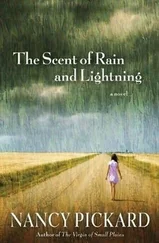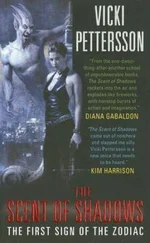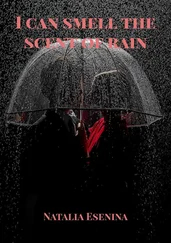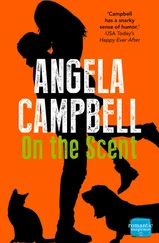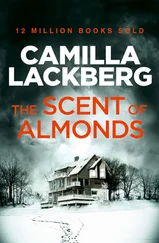Undoubtedly what is thus palpitating in the depths of my being must be the image, the visual memory which, being linked to that taste, is trying to follow it into my conscious mind. But its struggles are too far off, too confused and chaotic; scarcely can I perceive the neutral glow into which the elusive whirling medley of stirred-up colours is fused, and I cannot distinguish its form, cannot invite it, as the one possible interpreter, to translate for me the evidence of its contemporary, its inseparable paramour, the taste, cannot ask it to inform me what special circumstance is in question, from what period in my past life. . . . And suddenly the memory revealed itself.
The memory is of a specific place, a specific day, a specific scene:
But when from a long-distant past nothing subsists, after the people are dead, after the things are broken and scattered, taste and smell alone, more fragile but more enduring, more immaterial, more persistent, more faithful, remain poised a long time, like souls, remembering, waiting, hoping, amid the ruins of all the rest; and bear unflinchingly, in the tiny and almost impalpable drop of their essence, the vast structure of recollection.
Everything comes flooding back, the water lilies, the people of the village, their little houses, the church, all of Combray and its environs, all of it ‘taking shape and solidity, sprang into being, town and gardens alike, from my cup of tea’. 16
If this holds true, then the history of perfume and the luxury goods industry is not just a subset of social reality. A drop of perfume is time captured in scent, and the bottle is the vessel that holds the fragrance of time. The fascination with perfume bottles currently in evidence in post-Soviet Russia and elsewhere is more than just a quirk, it is its own ‘search for lost time’. The post-Soviet Proust is probably already on the prowl.
The difficulty of actualizing a past scentscape is obvious. The eye can fix on images that have been drawn, documented and reproduced – infinitely rich and differentiated, multi-faceted visual worlds. The ear has access to musical scores, recordings of the aural fabric of a city, the burst of a fanfare before a mass march, the voice from an interview, the speech on an important occasion. Noises and soundscapes can be recorded, retrieved, read, reproduced – everything from chiming bells to loudspeakers. Instruments can be recreated. But even with the most refined biochemical analyses now available to us, where do we stand when it comes to smell as a source of information that is supposed to be reliable, ‘intersubjectively reviewable’ and ‘objective’? Materials have their smell, flowers have their fragrance. In the chemical age, scents can be generated and reproduced at will. But they do not last forever. There is no archive of aromas in which odours can be stored for all eternity and retrieved again. Scents evaporate. They can be described, but for all the richness of language, the description of a scent comes nowhere near the experience of perceiving the infinite nuances of an aroma through the sense of smell, and certainly not through the professionally trained sense of an expert. Attempts to pin down the ‘pitches’, nuances, voices and spheres of scents in perfumer’s organs and written compositions, to objectify them and make them ‘readable’, are no more than approximations and aids for the novice.
It is no coincidence that histories of fragrances tend to focus on the vessels that hold them, the bottles that continue to exist long after the last traces of the volatile oils and essences have evaporated. They give form to the olfactory composition. The bottles become symbols that are synonymous with the scents they contain. This is why wherever you find bottles, you will find perfume archaeologists: in antique shops, on the many websites run by vintage communities, and in the fragrance categories on eBay. Many cities already have perfume museums, including Paris, Versailles, Grasse, Barcelona, Cologne, Saint Petersburg and Moscow. Much more material will come to light as collectors crawl around in attics and discover bottles of precious exotic scents carefully preserved by grandmothers despite the greatest hardships – the flotsam of past epochs. Amongst all the exhibitions and archives of scents, a special place would have to be reserved for a museum of smells featuring the jars in which the Stasi in East Germany stored scent samples from dissidents, which they used to train and drill their sniffer dogs.
The book at hand will have to make do with the capabilities of a historian who is aware of his limitations, has no laboratory of scents at his disposal and did not train as a perfumer. What he does have, however, is a notion that there is not just a ‘noise of time’ (Ossip Mandelstam) but also a ‘smell of time’ – that we move not just through soundscapes, but through scentscapes. If we want to take our leave of the twentieth century, we should do it with all of our senses. We can follow the traces of Chanel No. 5 and Red Moscow as we do so. Let us go back to their mutual starting point, their pre-history. We will track down the authors of the fragrances, who generally do not appear on the labels on the bottles. We will see how history diverges and realize that we are always dealing with more than just a vial of a precious essence – we are dealing with the world concentrated within it. And we will see that what befell the creators of these fragrances in the course of the twentieth century was both asymmetrical and unjust.
1 1 Somewhat different dates for the production and presentation of the perfume (1925/1927) are found in Schlögel, Das sowjetische Jahrhundert, pp. 250–63.
2 2 Regarding the Chanel No 5. exhibit at the Museum of Modern Art, see The Package, Museum of Modern Art Bulletin, vol. 27, no. 1, Fall 1959, available online at https://assets.moma.org/documents/moma_catalogue_1953_300190180.pdf.
3 3 Arthur Gold and Robert Fizdale, Misia, p. 215.
4 4 Some attribute the phrase to the Finns, who used it to refer to their weapons in the Soviet–Finnish Winter War; others trace it back to a decree issued by Molotov.
5 5 Even the exhibition in the Palais de Tokyo takes a Western-centric view of the history of Chanel’s perfume, aside from references to Diaghilev and Stravinski, etc.
6 6 Constance Classen et al., Aroma; regarding the sociology of smell, see Jürgen Raab, Soziologie des Geruchs.
7 7 Quoted in Alain Corbin, The Foul and the Fragrant, p. v.
8 8 Jonathan Reinarz, Past Scents, pp. 209, 216, 217, 218. Russian research has been collected in volumes edited by Olga Vainshtein, Aromaty i zapakhi v kul’ture; Olga Vainshtein, Dendi; Irina A. Mankevich, Povsednevnyy Pushkin; Olga Kushlina, ‘Ot slova k zapakhu’, pp. 102–10; Maria Pirogovskaya, Miazmy, simptomy, uliki.
9 9 Georg Friedrich Wilhelm Hegel, Phenomenology of Spirit, p. 331.
10 10 Immanuel Kant, Anthropology from a Pragmatic Point of View, pp. 50f.
11 11 Friedrich Nietzsche, Ecce homo, p. 88.
12 12 Friedrich Nietzsche, Thus Spoke Zarathustra, p. 408.
13 13 Konstantin M. Verigin, Blagoukhannost’, and Arthur Schopenhauer, The World as Will and Representation, p. 31.
14 14 George Orwell, The Road to Wigan Pier, quoted in Classen et al., Aroma, p. 166.
15 15 Somerset Maugham, quoted in Classen et al., Aroma, p. 166.
16 16 Marcel Proust, In Search of Lost Time, vol. I: Swann’s Way, pp. 60–5.
Конец ознакомительного фрагмента.
Текст предоставлен ООО «ЛитРес».
Прочитайте эту книгу целиком, купив полную легальную версию на ЛитРес.
Читать дальше
